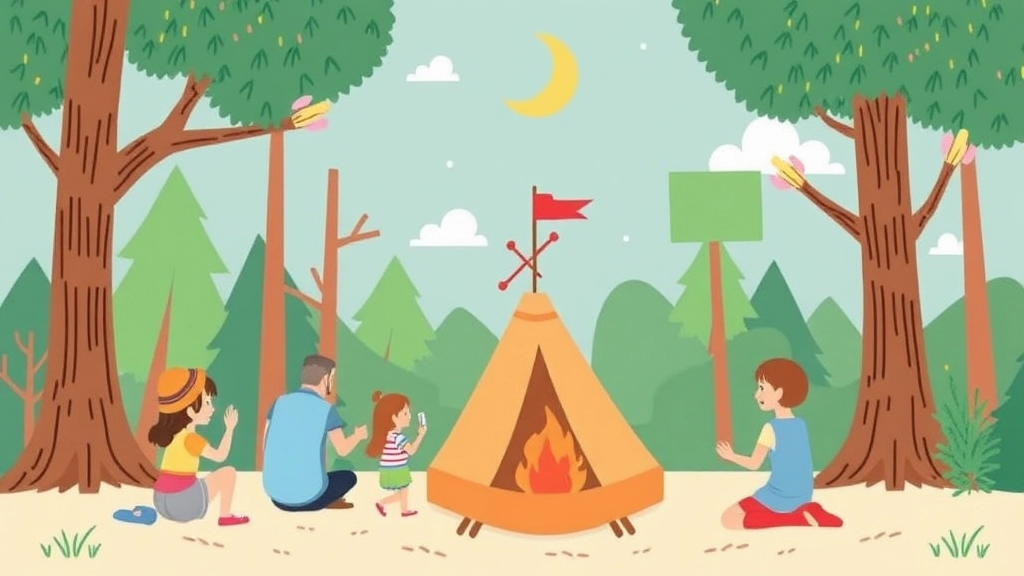How Do You Say Summer Camp In Spanish?
Ever wondered how to talk about summer camps in Spanish? You’re in the right place! This article dives deep into the term “How Do You Say Summer Camp In Spanish” and its various translations and uses across different Spanish-speaking countries. We’ll explore the common translation “Campamento de Verano,” regional variations like “Colonia de Vacaciones” in Argentina, and alternative phrases such as “Campamento Estival.” By the end, you’ll be well-equipped to discuss summer camps confidently, whether you’re planning a trip or just brushing up on your Spanish skills.
Why Knowing the Term Matters
Why does knowing the term matter? Simple. It helps you connect with locals, understand cultural nuances, and avoid awkward moments. From engaging in conversations to booking a camp for your kids, being familiar with terms like “Campamento de Verano” and “Colonia de Vacaciones” can make a world of difference.
What to Expect
So, let’s get started and explore how to use these terms effectively, the activities you can expect at a summer camp, and even the differences between children’s and adult camps in Spanish-speaking countries. Ready to sound like a pro? Let’s dive in!
Common Translation: Campamento de Verano
Hey, ever wondered what “summer camp” is in Spanish? Well, you’re in luck because today we’re diving into that exact topic. The common translation for “summer camp” is “Campamento de Verano.” This term is your go-to phrase when talking about those fun-filled, activity-packed weeks kids look forward to every year.
But why should you care about this term? Simple. If you’re planning a trip to a Spanish-speaking country, or if you’re just trying to brush up on your Spanish skills, knowing how to talk about summer camps can be super useful. Plus, you never know when it might pop up in a conversation or in your favourite Spanish TV show.
Why “Campamento de Verano” Matters
So, why is “Campamento de Verano” the standard term? It’s straightforward and universally understood across Spanish-speaking countries. Whether you’re in Spain, Mexico, or Colombia, people will get what you’re talking about. But, here’s the kicker â different regions have their own twists on the term.
Real Questions You Might Have
- “What if I’m in Argentina? Do they use the same term?”
- Great question! While “Campamento de Verano” is widely understood, Argentina often uses “Colonia de Vacaciones.” We’ll dive deeper into this in a bit.
- “Are there other ways to say ‘summer camp’ in Spanish?”
- Absolutely. Words like “Campamento Estival” also get thrown around. More on that later.
Making It Easy to Remember
To make things easier, let’s break it down:
- Campamento = Camp
- de Verano = of Summer
Put it together, and you’ve got “Campamento de Verano.” Simple, right?
Engage with Examples
Imagine you’re chatting with a friend over coffee, and they ask about your summer plans. You could say:
- “Estoy pensando en enviar a mis hijos a un campamento de verano este año.”
Translation: “I’m thinking of sending my kids to a summer camp this year.” - “Recuerdo cuando fui a un campamento de verano; fue increÃble.”
Translation: “I remember when I went to a summer camp; it was amazing.”
Why It’s Important
Knowing the term “Campamento de Verano” isn’t just about expanding your vocabulary. It’s about connecting with people, understanding cultural nuances, and making your conversations richer. Whether you’re planning a trip, moving to a Spanish-speaking country, or just want to impress your Spanish-speaking friends, this term is a must-have in your linguistic toolkit.
So, next time summer rolls around, and you’re discussing plans, you’ll be ready to drop “Campamento de Verano” like a pro. Stay tuned as we explore regional variations, alternative phrases, and much more. For those planning to attend a summer camp, make sure to check out our Summer Camp Packing List Essentials to ensure you have everything you need. Also, if you’re looking for some fun activities, our guide on Summer Camp Scavenger Hunt Ideas is a must-read!
Regional Variations of Summer Camp in Spanish
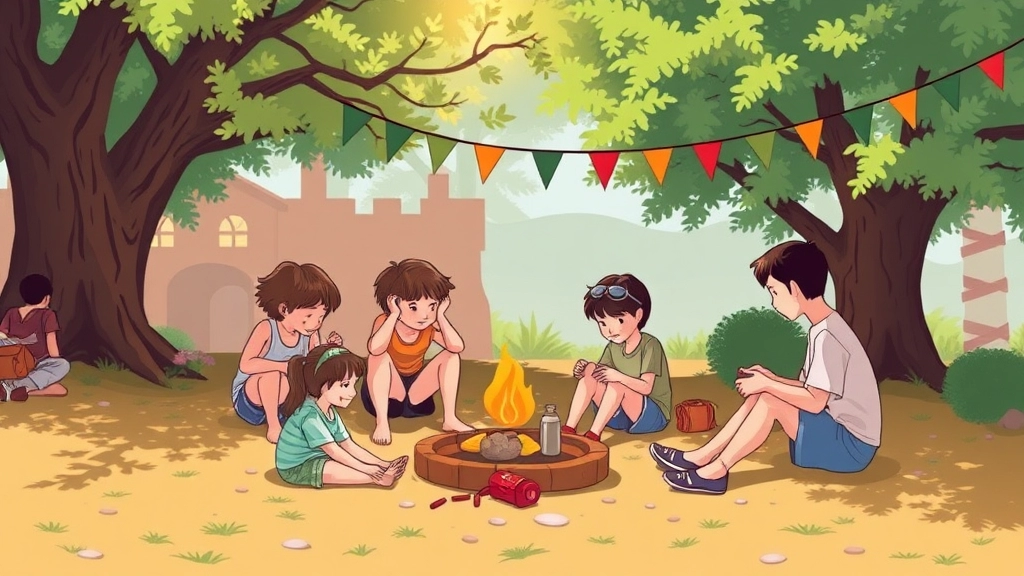
Ever wondered why “summer camp” has different names across Spanish-speaking countries?
You’re not alone.
Let’s break it down.
Why So Many Names?
Different regions, different terms. It’s all about local flavour.
In Spain, you’ll hear “campamento de verano”.
But head to Argentina, and it’s “colonia de vacaciones”.
Mexico? “Campamento de verano” works just fine.
Quick List of Terms
- Spain: Campamento de Verano
- Argentina: Colonia de Vacaciones
- Mexico: Campamento de Verano
- Chile: Campamento de Verano
- Colombia: Campamento de Verano
What’s the Deal?
Why the variation?
It’s like how Americans say “vacation” and Brits say “holiday”.
Different words, same meaning.
Real Talk
Imagine you’re in Buenos Aires, and you ask about a “campamento de verano”.
You might get blank stares.
But say “colonia de vacaciones”, and everyone’s got a story.
Key Takeaways
- Adapt to the region: Know the local lingo.
- Ask the locals: They’ll guide you.
- Be flexible: Different places, different terms.
Story Time
I was in Spain, looking for a summer camp for my niece.
Asked about a “colonia de vacaciones”.
Got a confused look.
Switched to “campamento de verano”.
Bingo.
Why It Matters
Knowing these terms isn’t just trivia.
It’s practical.
It helps you blend in, get directions, and find what you need.
Alternative Phrases: Campamento Estival and Their Usage
Ever found yourself wondering if “Campamento de Verano” is the only way to say “summer camp” in Spanish? Well, let me tell you, it’s not. There’s another term you might come across: “Campamento Estival.” But when should you use it, and why does it matter? Let’s dive in.
What is “Campamento Estival”?
“Campamento Estival” is essentially a fancier way to say “summer camp.” Think of it as the posh cousin of “Campamento de Verano.” While “Campamento de Verano” is the go-to phrase, “Campamento Estival” can add a touch of sophistication to your conversation. It’s like choosing to say “holiday” instead of “vacation.”
When to Use “Campamento Estival”
You might be asking yourself, “When should I use ‘Campamento Estival’ instead of ‘Campamento de Verano’?” Here are some scenarios:
- Formal Settings: If you’re writing an article, a formal letter, or a school essay, “Campamento Estival” might be more appropriate.
- Marketing Materials: If you’re in the business of promoting summer camps, using “Campamento Estival” can make your camp sound more exclusive and upscale.
- Literature and Media: In books, movies, or TV shows, you might come across “Campamento Estival” for a bit of variety and flair.
Examples of Usage
Let’s break it down with some examples:
- Formal Letter: “Estimado Director, me gustarÃa inscribir a mi hijo en el Campamento Estival de su prestigiosa institución.”
- Marketing Brochure: “Descubre la magia del verano en nuestro Campamento Estival, donde la aventura y el aprendizaje van de la mano.”
- Casual Conversation: “Este año, estamos pensando en enviar a los niños a un Campamento Estival para que disfruten de nuevas experiencias.”
Why Knowing Both Terms is Useful
Why bother knowing both terms? Because it makes you sound more fluent and versatile in Spanish. Here’s why it’s a game-changer:
- Flexibility: You can switch between terms depending on the context, making you sound more natural.
- Impression: Using “Campamento Estival” in the right setting can impress native speakers with your command of the language.
- Understanding: You’ll be able to understand and appreciate different nuances in Spanish media and literature.
Real-Life Story
Let me share a quick story. A friend of mine was planning to send his kid to a summer camp in Spain. He kept using “Campamento de Verano” in all his communications. Then, he stumbled upon a brochure that used “Campamento Estival.” He switched up his vocabulary, and guess what? The camp director was impressed and even offered a slight discount, thinking my friend had a better grasp of Spanish culture. Small change, big impact!
If you’re looking for more tips on making your summer camp experience memorable, check out our guide on summer camp packing hacks. And for those interested in the history and spooky tales of camps, don’t miss our article on the abandoned Swansboro camp.
How to Use “Campamento de Verano” in Conversation
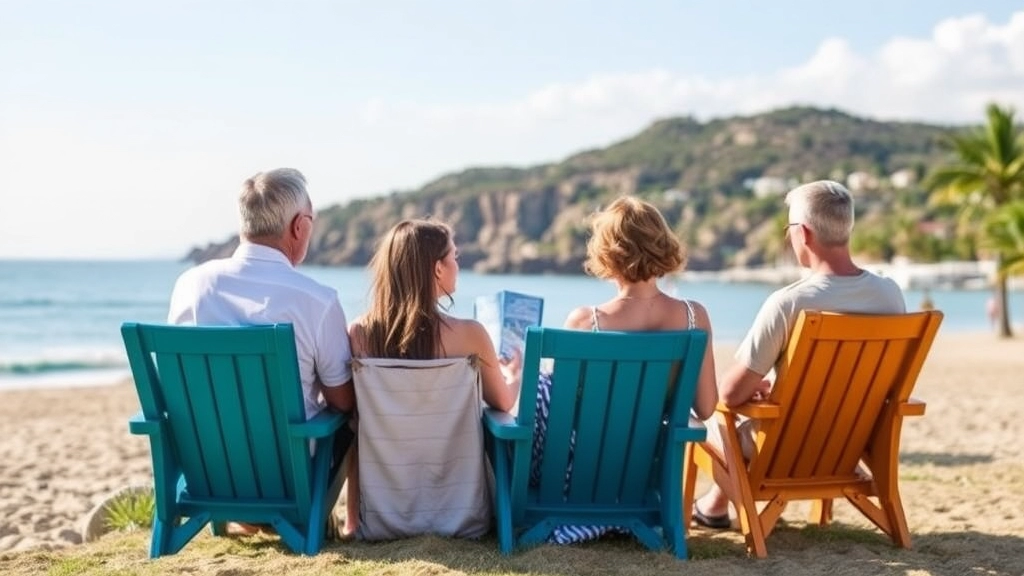
Ever wondered how to talk about summer camps in Spanish without sounding like a tourist?
Yeah, me too.
Using “campamento de verano” in conversation is easier than you think.
Let’s dive in.
Kicking Off the Conversation
First off, drop the keyword right at the start.
Imagine this:
You’re chatting with a Spanish-speaking friend and you want to mention your kids’ summer plans.
You can say:
- “Mis hijos van a un campamento de verano este año.”
Simple, right?
Adding the Details
Now, let’s add some flavour.
Talk about what kind of camp it is:
- “Es un campamento de verano de deportes.”
- “Van a un campamento de verano de arte.”
Asking Questions
Questions keep the convo going.
Here are some you can use:
- “¿Tus hijos también van a un campamento de verano?”
- “¿Qué actividades hay en el campamento de verano?”
Sharing Experiences
Got a story? Share it.
- “Recuerdo cuando fui a un campamento de verano y aprendí a nadar.”
This makes it personal and relatable.
Wrapping It Up
To wrap up, reiterate your main point.
- “Los campamentos de verano son una gran experiencia para los niños.”
And there you have it.
Using “campamento de verano” in conversation is all about keeping it simple and relatable.
So next time you’re talking about summer plans, you’ll know exactly what to say.
Got it?
Cool.
Now go out there and chat like a pro.
Regional Preferences: Colonia de Vacaciones in Argentina
Ever wondered why your Argentinian mate keeps saying “colonia de vacaciones” instead of “campamento de verano”? This isn’t just a quirky local termâit’s a whole cultural thing. Let’s dive in.
Why “Colonia de Vacaciones”?
In Argentina, the term “colonia de vacaciones” is the go-to phrase for what many of us call a summer camp. So, why the difference? Well, it’s all about regional preferences and cultural nuances.
Colonia de Vacaciones translates directly to “holiday colony,” which might sound a bit odd if you’re used to “summer camp.” But in Argentina, this term is deeply ingrained in their culture. It’s not just about camping in the woods; it’s about a structured holiday program filled with activities, learning, and fun.
What Makes It Unique?
Here’s where it gets interesting. Unlike the typical image of a summer camp with tents and campfires, a colonia de vacaciones often takes place in urban settings. Think schools, sports clubs, or community centres.
Activities:
- Swimming
- Arts and crafts
- Sports
- Educational workshops
These camps are designed to keep kids engaged and active during their summer break, offering a safe space for them to learn new skills and make friends.
Real Talk: Why Should You Care?
If you’re planning to visit Argentina or have friends from there, knowing this term can be a game-changer. Imagine you’re chatting with an Argentinian parent, and you drop “colonia de vacaciones” instead of “campamento de verano.” Instant brownie points for cultural awareness!
Pro Tips:
- Use it in conversation: “My kids are excited about their colonia de vacaciones this summer.”
- Ask questions: “What activities does your local colonia de vacaciones offer?”
Stories from the Field
I remember chatting with my friend Maria from Buenos Aires. She was thrilled about her son’s first colonia de vacaciones. She described it as a blend of fun and learning, with activities ranging from soccer to science experiments. Her excitement was contagious, and it made me realise how significant this term is in their culture.
Quick Comparison
| Term | Country | Setting | Activities |
|---|---|---|---|
| Campamento de Verano | Spain, Mexico | Rural, Nature | Camping, Hiking, Outdoor Sports |
| Colonia de Vacaciones | Argentina | Urban, Community | Swimming, Arts, Sports, Workshops |
Looking for more summer camp options? Check out our engaging summer camp curriculum guide for a comprehensive overview. If you’re curious about unique camp settings, explore our ultimate guide to summer camp layout design for some creative ideas.
Comparing Summer Camp Terms Across Spanish-Speaking Countries
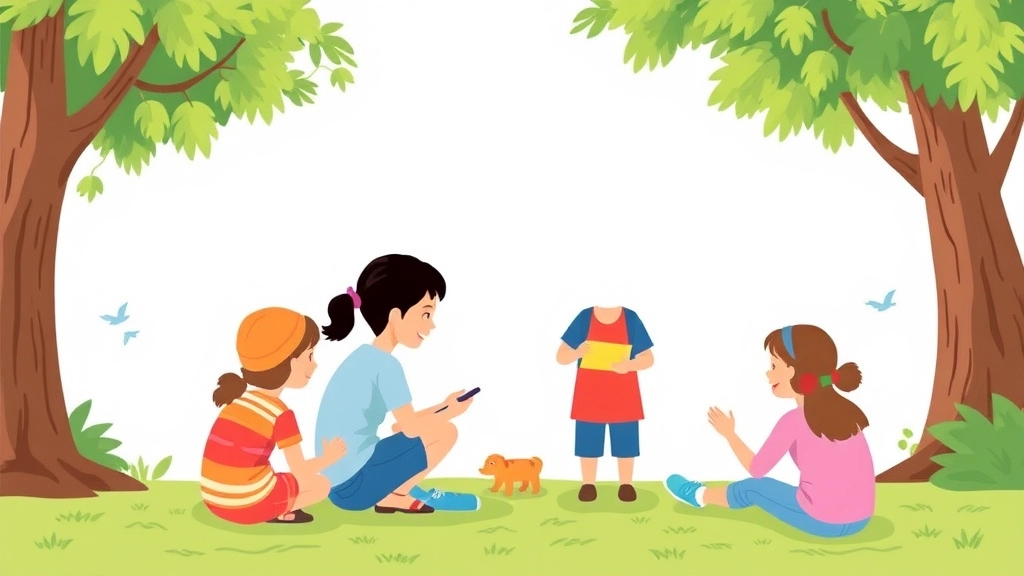
Ever wondered how to talk about summer camps in different Spanish-speaking countries?
Let’s dive into it.
“Campamento de Verano” is the go-to term in most places.
But guess what?
It’s not universal.
Here’s a breakdown of how different regions mix it up.
Spain
In Spain, “Campamento de Verano” is the standard.
No surprises there.
Mexico
Same deal in Mexico.
Everyone calls it “Campamento de Verano.”
Argentina
Here’s where it gets interesting.
In Argentina, you’ll hear “Colonia de Vacaciones.”
Sounds fancy, right?
Chile and Peru
These countries stick with “Campamento de Verano.”
No fuss, no muss.
Colombia
Colombians also prefer “Campamento de Verano.”
Why Does This Matter?
Knowing these terms can make or break your conversation.
Imagine you’re in Argentina, and you say “Campamento de Verano.”
People might get it, but it’s not what they’d say.
Quick Reference Table:
| Country | Common Term |
|---|---|
| Spain | Campamento de Verano |
| Mexico | Campamento de Verano |
| Argentina | Colonia de Vacaciones |
| Chile | Campamento de Verano |
| Peru | Campamento de Verano |
| Colombia | Campamento de Verano |
Real Talk
When I was in Buenos Aires, I tried to book a “Campamento de Verano” for my niece.
Blank stares.
Then I said “Colonia de Vacaciones.”
Boom.
Instant understanding.
Wrap-Up
Knowing the right term can save you time and confusion.
And it shows you’ve done your homework.
So, next time you’re chatting about summer camps, you’ll sound like a local.
Remember, it’s “Campamento de Verano” in most places, but “Colonia de Vacaciones” in Argentina.
Got it?
Good.
Now you’re ready to talk summer camps like a pro.
Activities at a “Campamento de Verano”
Ever wondered what goes down at a “campamento de verano”? Let’s break it down. If you’re thinking about sending your kid to one or even attending an adult version yourself, you probably have a ton of questions. What do they do all day? Is it just non-stop fun, or do they sneak in some learning too? Well, you’re in the right place. Let’s dive into the nitty-gritty of what makes a summer camp in Spanish-speaking countries tick.
Fun and Games: The Heart of It All
First off, fun activities are the bread and butter of any good summer camp. Think of it as a playground on steroids.
- Sports: Football (soccer for my American friends), basketball, volleyballâyou name it. Camps often have a variety of sports to keep the kids active and engaged.
- Swimming: Almost a given. Whether it’s in a lake, a pool, or even the ocean, swimming is a staple.
- Arts and Crafts: From painting to pottery, these activities let kids flex their creative muscles.
- Music and Dance: Whether it’s learning a new instrument or grooving to some tunes, these activities are always a hit.
Learning Disguised as Fun
But it’s not all just games. Many camps sneak in some educational activities too. Think of it as learning without the boring bits.
- Nature Walks and Hikes: These aren’t just about burning energy. Kids learn about local flora and fauna, making it an educational experience.
- Science Experiments: Simple experiments that can be done outdoors are a win-win. Think making volcanoes with baking soda and vinegar or simple chemistry sets.
- Cultural Activities: In Spanish-speaking countries, this might include learning traditional dances, songs, or even cooking local dishes.
Building Life Skills
One of the underrated aspects of a “campamento de verano” is the focus on life skills. Camps are a great place for kids to learn things they won’t typically pick up in a classroom.
- Teamwork and Leadership: Group activities and team sports naturally foster these skills.
- Problem-Solving: Whether it’s figuring out how to set up a tent or navigating a scavenger hunt, problem-solving is a daily part of camp life.
- Independence: Being away from home, even for a short time, helps kids become more self-reliant.
Special Themes and Workshops
Some camps take it up a notch with special themes and workshops. These can range from technology camps where kids learn coding to adventure camps focused on survival skills.
- Tech Camps: Learning to code, building robots, or even basic electronics.
- Adventure Camps: Think rock climbing, zip-lining, and other adrenaline-pumping activities.
- Art Camps: More intensive focus on various art forms, from painting to drama.
Real Stories: What Makes It Memorable
Let me share a quick story. My friend’s kid went to a campamento de verano in Spain and came back raving about the night-time stargazing sessions. They had a local astronomer come in and teach the kids about constellations. It was educational, sure, but also magical. These are the kinds of experiences that make summer camps unforgettable.
Why It Matters
So, why should you care about the activities at a “campamento de verano”? Knowing what to expect helps in making an informed decision. Whether you’re looking for a place that balances fun and learning or one that focuses on specific skills, understanding the activities offered can guide you to the right choice.
Why Knowing the Term Helps in Spanish-Speaking Countries
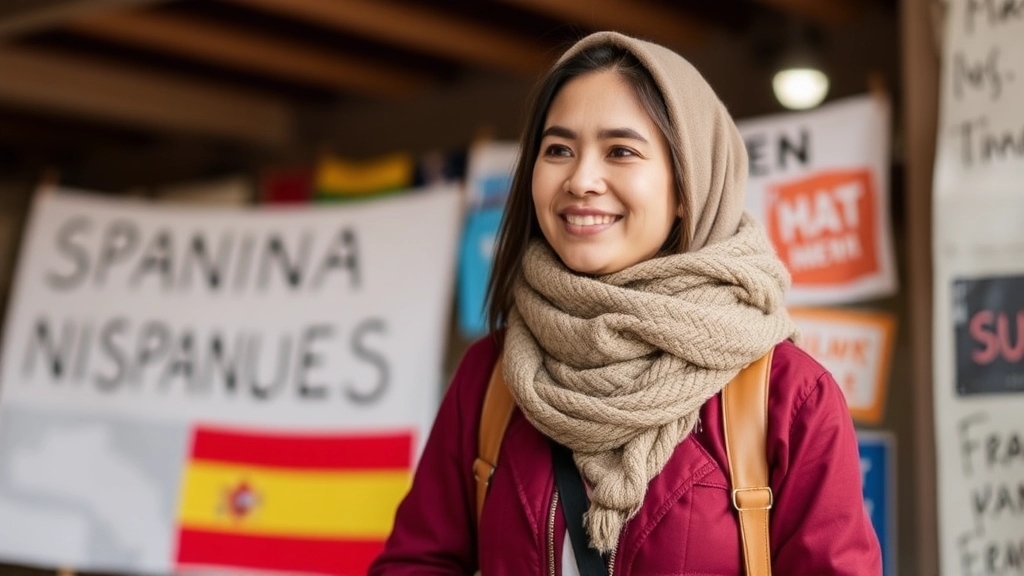
Ever found yourself in a Spanish-speaking country, trying to talk about summer camps, and totally blanking?
Yeah, been there.
Knowing the right term can save you a lot of headaches.
Why It Matters
Imagine you’re in Spain or Mexico, and you want to sign your kid up for a summer camp.
You say “summer camp,” and they look at you like you’re from another planet.
But say “campamento de verano,” and you’re golden.
Real-Life Scenarios
Booking a Camp:
You’re in Argentina, looking to book a camp for your child.
Knowing the term “colonia de vacaciones” makes you sound like a local.
Making Friends:
You’re chatting with parents at a park in Chile.
Drop “campamento de verano” into the conversation, and suddenly, you’re part of the group.
Benefits of Knowing the Term
- Confidence: You won’t feel like an outsider.
- Clarity: You’ll avoid misunderstandings.
- Connection: People appreciate when you know their lingo.
Quick Tips
- Learn Regional Variations: Terms like “campamento estival” might pop up.
- Practice: Use these terms in casual conversations.
- Ask Locals: Don’t be shy. Locals love helping out.
Pro Tip
Use “campamento de verano” in your travel notes or when chatting online.
It makes you sound knowledgeable and prepared.
Differences Between Children’s and Adult Camps in Spanish
Ever wondered if there’s a difference between children’s and adult camps in Spanish-speaking countries? Spoiler alert: there is. And it’s not just about the age of the campers. Knowing these differences can make your travel plans smoother and your conversations more engaging. Let’s dive in.
What’s the Real Deal?
When you hear “campamento de verano,” you might think it’s all about kids running around, making crafts, and singing campfire songs. But in Spanish-speaking countries, there are distinct differences between camps for kids and those for adults.
Children’s Camps (Campamentos de Verano para Niños)
Children’s camps, or campamentos de verano para niños, are pretty much what you’d expect:
- Activities: Think sports, arts and crafts, nature hikes, and talent shows. These camps are designed to keep kids entertained and active.
- Supervision: There’s always a team of counsellors and staff keeping an eye on the kids, ensuring their safety and well-being.
- Duration: These camps can last from a few days to several weeks, depending on the program.
- Educational Aspect: Often, these camps have an educational component, whether it’s learning about nature, improving language skills, or even a bit of science.
Adult Camps (Campamentos para Adultos)
Now, let’s talk about the grown-ups. Campamentos para adultos are a whole different ball game:
- Activities: These can range from wellness retreats, yoga sessions, and cooking classes to adventure sports like rock climbing and kayaking.
- Focus: Unlike children’s camps, adult camps often focus on personal development, relaxation, or specific skills. Think of them as a mix of a holiday and a self-improvement workshop.
- Social Aspect: Networking and socialising are big parts of adult camps. It’s not just about the activities but also about meeting like-minded people.
- Duration: These can be weekend getaways or week-long retreats, offering a perfect escape from the daily grind.
Why It Matters
Knowing these differences can help you choose the right camp experience, whether you’re planning for your kids or looking for a personal retreat. Plus, it makes you sound like a local when you drop the right term in conversation.
Real Questions People Ask
- “Can adults attend children’s camps?” Generally, no. Children’s camps are specifically designed for kids, with activities and supervision tailored to their needs.
- “Are there family camps?” Yes, some camps are designed for families, offering activities that cater to both kids and adults.
Quick Tips for Choosing the Right Camp
- Define Your Goals: Are you looking for relaxation, adventure, or skill development?
- Check Reviews: Look for feedback from previous attendees to get a sense of what to expect.
- Ask About the Schedule: Make sure the camp’s duration and activities fit your availability and interests.
For those interested in exploring different types of camps, check out our Spanish immersion summer camps and ultimate guide to Camp English summer.
Common Questions about Spanish Summer Camps
Thinking about sending your kids to a “campamento de verano”?
You’re not alone.
Parents have a ton of questions.
Here are the most common ones:
What Age Groups Are Accepted?
Most camps accept kids aged 6-16.
But some camps cater to younger kids or even teens only.
What Activities Are Offered?
Expect a mix of:
- Sports (football, swimming, hiking)
- Arts and crafts
- Drama and music
- Educational workshops
Is It Safe?
Yes.
Camps follow strict safety protocols.
Trained staff, secure facilities, and emergency plans are standard.
How Much Does It Cost?
Prices vary.
Factors include:
- Duration of the camp
- Location
- Type of activities
Generally, you’re looking at anywhere from £300 to £1,000.
What Should My Child Bring?
Essentials include:
- Clothing for various weather
- Toiletries
- Any necessary medications
- A reusable water bottle
Always check the camp’s packing list.
Are There Language Barriers?
Not really.
Many camps offer bilingual programs.
Kids pick up languages quickly in immersive environments.
Can Parents Visit?
It depends.
Some camps have visiting days.
Others prefer parents to wait until the end.
What’s the Food Like?
Nutritious and varied.
Camps cater to dietary restrictions and allergies.
How Do I Choose the Right Camp?
Consider:
- Your child’s interests
- The camp’s reputation
- Reviews from other parents
- Safety measures
What If My Child Gets Homesick?
It happens.
Staff are trained to handle it.
Kids usually adapt quickly.
Are There Camps for Adults?
Yes, there are.
From fitness retreats to creative workshops.
For more specific options, check out our summer camps for junior high and our guide to summer camp activities by age.
FAQs on How to Say Summer Camp in Spanish
What are the common terms for “summer camp” in Spanish-speaking countries?
The term “summer camp” can vary depending on the region. In Spain, Mexico, Chile, Colombia, and Peru, it’s commonly called “campamento de verano”. In Argentina, it’s known as “colonia de vacaciones”.
Why do different Spanish-speaking countries use different terms for summer camp?
Different regions have their own local terms, much like how Americans say “vacation” and Brits say “holiday.” These variations reflect local cultural and linguistic preferences.
How can knowing the local term for summer camp help me?
Knowing the local term can make your interactions smoother and more effective. It shows that you’ve done your homework and helps you blend in, get directions, and find what you need without confusion.
Can you give an example of how to use “campamento de verano” in conversation?
Sure! If you’re talking about your children’s summer plans, you could say: “Mis hijos van a un campamento de verano este año.” This means “My children are going to a summer camp this year.”
What should I say if I’m in Argentina and want to talk about a summer camp?
In Argentina, you should use the term “colonia de vacaciones”. For example, you could say: “Mis hijos van a una colonia de vacaciones este verano,” which means “My children are going to a summer camp this summer.”
Is “campamento de verano” understood in all Spanish-speaking countries?
While “campamento de verano” is widely understood in many Spanish-speaking countries, it’s always best to use the local term when possible to avoid any confusion and to show cultural awareness.
What are some tips for using these terms correctly?
Here are a few tips:
- Learn Regional Variations: Familiarize yourself with the local term for summer camp in the country you are visiting.
- Practice: Use these terms in casual conversations to get comfortable with them.
- Ask Locals: Don’t hesitate to ask locals for the correct term. They’ll appreciate your effort to speak their language.
Why is it important to know regional variations of “summer camp” in Spanish?
Knowing regional variations helps you communicate more effectively and avoids misunderstandings. It also shows respect for the local culture and can make your interactions more genuine and engaging.
What should I do if I’m not sure which term to use?
If you’re unsure, start with “campamento de verano” as it is widely understood. If you notice any confusion, you can ask the locals for the term they use. They will likely be happy to help you.
Can you give an example of how to ask about summer camp activities in Spanish?
Absolutely! You could ask: “¿Qué actividades hay en el campamento de verano?” which means “What activities are there at the summer camp?”
How can I make sure I’m using the term correctly in conversation?
Practice using the term in sentences and try to incorporate it into your daily conversations. You can also listen to how locals use the term and mimic their usage. Over time, it will become more natural for you.
References
-
How to Talk About Summer Camp in Spanish
-
Spanish Vocabulary for Summer
-
How to Talk About Summer in Spanish

